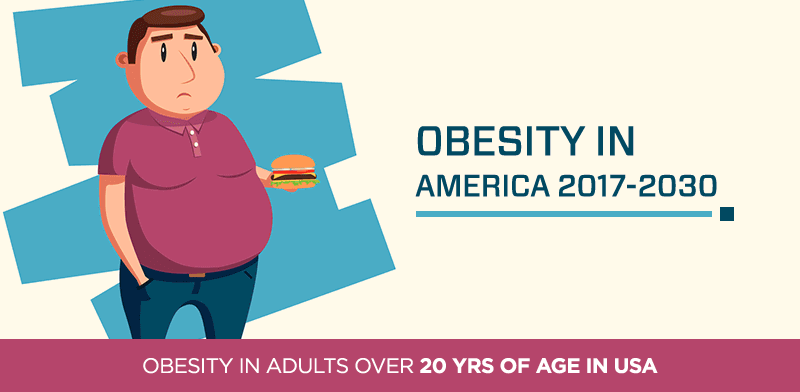Obesity Is an alarming problem. New 2017 data for obesity statistics in America suggests that it is only going to increase to 50% of the US adult population in 2030.
Experts correlate the condition variously. There are multiple sides to causes and cure for obesity.
Unsurprisingly Correlation
We’ve found that is a direct correlation between corn Sweeteners (High Fructose Corn Syrup) and obesity. This correlation between pounds of corn sweeteners consumed per capita and the rate of obesity that suggest it is only going to continue and grow. Obesity in 1960 was just at 13 percent and predicted 70-years later in 2030 to reach 50 percent – growing over 5 percent per a decade.
Another correlation is the total amount of calories consumed per day, per capita and the obesity rates. We’re now consuming about 2600 calories per person per day – an increase of nearly 500 calories since 1980.
Scary Consequences
In the present day, more than one-third nationally, nearly 38 percent of adults are obese, and approximately 8 percent are extremely obese. No one state has under 20 percent obesity rates, Colorado being that 20 percent and Louisiana topping the scales at 36 percent. Adults 40-59 years of age are more likely to be obese with 40 percent being obese. Those over 60 years old are 37 percent obese. Younger adults from the ages of 20-39 are 32 percent obese.
Income and Obesity Correlations
These alarming rates also have a great correlation with economic disparity. 33 percent of those who earn less than $15,000 are, compared with those who received $50,000 or more are 25 percent obese. Nearly 33 percent of adults who did not graduate high school were obese, compared with just 21.5 percent of those who graduated from college or technical college.
Contributing to the economic disparity is obesity medical costs. The estimated annual medical cost of obesity in the U.S. was $147 billion USD in 2008. The medical expenses for people who are obese were $1,429 USD higher than those of healthy weight.
Data Reference – https://www.niddk.nih.gov/health-information/health-statistics/overweight-obesity
This infographic was provided by Renew Bariatrics, a provider of affordable gastric sleeve procedures to those suffering from obesity.

